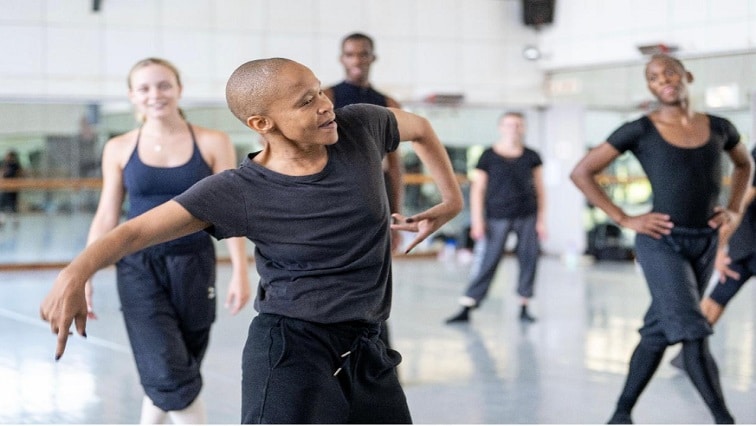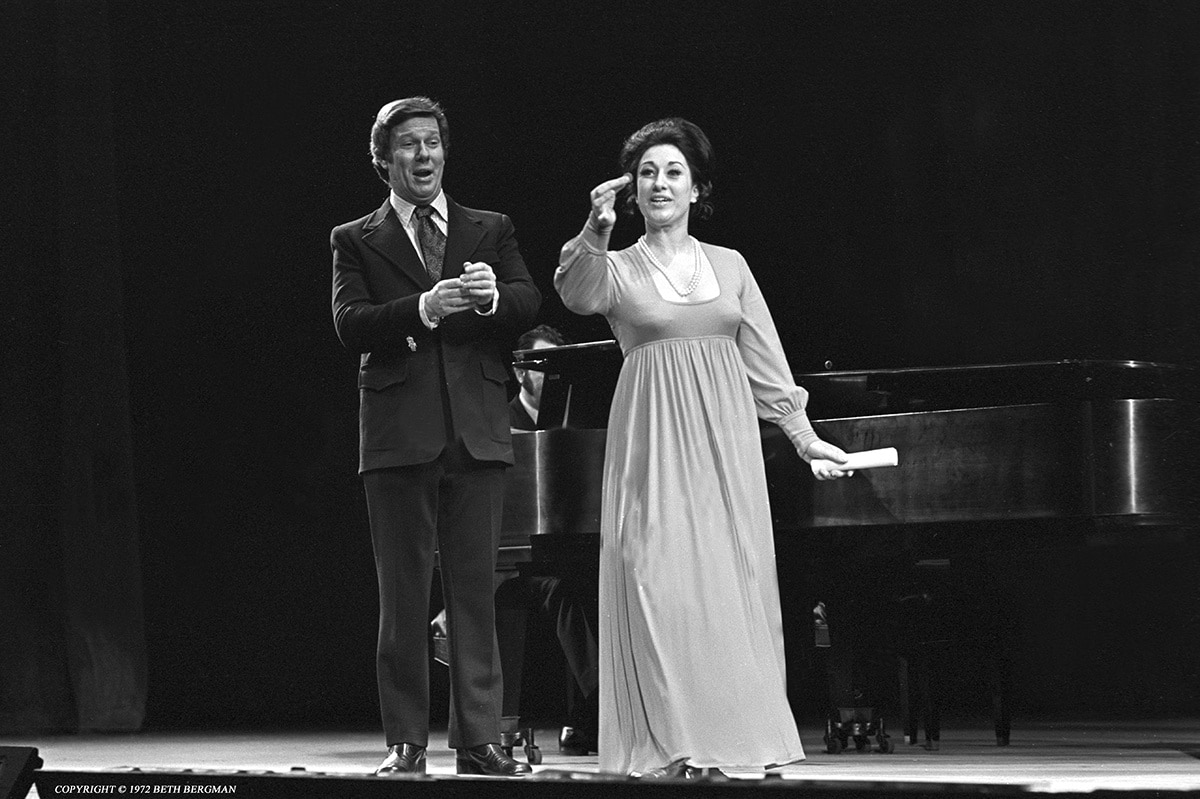Modern music ‘is dominated by botched philosophy’
mainThe Future Symphony Institute, a Baltimore-based initiative to define the next big thing, has commissioned a article from the conservative philosopher Roger Scruton. Sample:
… Botched philosophy has dominated the modern classical repertoire. Very few composers have philosophical gifts, and fewer still attempt to justify their music in philosophical terms – the great exception being Wagner, who, despite his vast literary output, always allowed his instinctive musicianship to prevail when it conflicted with his philosophical theories. But it is precisely the absence of philosophical reflection that has led to the invasion of the musical arena by half-baked ideas. Without the firm foundations provided by a live culture of music-making, philosophy is the only guide that we have; and when good philosophy is absent, bad philosophy steps in to the gap.
The worst example of this, and it is an example whose influence is almost as strong today as it was in the aftermath of the Second World War, is Theodor Adorno’s Philosophy of New Music, first published in 1947. In that book Adorno develops the philosophy of a major composer, who almost succeeded in doing what Wagner happily failed to do, which was to replace the reality of music by an abstract idea of it. Schoenberg’s twelve-tone serialism was based on a set of ideas that are clearly disputable, but which, because of the pretence of system, could overwhelm the hesitant objections of mere music-lovers.
Read the full essay. Why Musicians Need Philosophy, here.






Delight at realising which people this is going to anger is offset by depression at the thought of which people it’ll please.
The point is: which ideas will inspire something worthwhile in terms of music? The proof of the pudding is in the eating. How much wonderful music has Adorno inspired? Or Schoenberg, for that matter? Why has Schoenberg not entered the repertoire apart from some early pieces? Why has modernism created its own cultural sphere distinct from the central performance culture? All these questions are implied by Scruton’s (short) article.
Oh, Roger Scruton. It’s hilarious and sad the way he’s tried so hard to get the approval of the more privileged and aristocratic boys from public school days by spouting nonsense that will get them to pay him on the back and say, “there, there, Rog – mate, you’re one of us now.” What a load of absolute rubbish.
Nice one. Anyone ever heard any compositions by Scrotum?
Yes. I wasn’t enamoured. Nice man even though I didn’t agree with his general outlook.
A comment demonstrating great ingorance. Reading Scruton’s ‘Aesthetics of Music’ may fill some gaps….
Suits me – I prefer ignorance to pretension.
To ignorant people, knowledge seems to be pretension. It’s a sign of a lazy mind: ‘If you are pretentious, I don’t have to feel inferior’. Sign of an adult mind: ‘All this seems crazy to me; let me chew upon it’; and this may lead to interesting territory.
Okay – I’ll opt for lazy, same difference.
Poor kid: ignorant, lazy, and obviously proud of it. And irritating, too.
The essay is a good laugh if nothing else …………
Scruton has indeed proven to be an artful master writing much and saying nothing .
Reminds one of the famous “professor ” comedian , except for some reason the “professor ”
makes more sense, which gives one pause.
The problem with that essay is, that it was meant for intelligent people.
Intelligent people would view the essay for what it is ..ridiculous mumbo jumbo and
pretentious BS writ large with Borstlap as the cultural messiah .
Two clowns left behind when the circus left town .
Life is difficult, isn’t it?
Not really, I find it quite easy.
I know and like Roger Scruton. It therefore saddens me to read him writing such utter nonsense. What is written here – is it perhaps the work of an imposter, a ‘Random Roger Scruton Article Generator? – reads like the work a third-rate Pfitzner as sixth-former (or should that be the other way around?) I cannot believe that that is what he actually thinks of Adorno, let alone Schoenberg; if he does, he cannot actually have read Adorno’s ‘Philosophy of New Music’, which he seems to treat as if it were a manifesto. He seems entirely, at least here, to ignore the social critique which is at the heart of Adorno’s writing and certainly of that book. This really isn’t worthy of any further comment, which is a pity, because I’m sure Scruton would have something interesting to say about Adorno’s ideas, were he actually to think about them; he might indeed find his antagonist’s critique of mass culture not so very different from his own. Likewise, actually, Stockhausen’s music. As it stands, I should throw this strange, uninformed rant back in the face of that bumptious sixth-form Pfitzner.
Scruton knows Adorno very well and goes deep into the questions Adorno had raised in his ‘Philosophy of New Music’, in his ‘Aesthetics of Music’ and in his ‘Modern Culture’. Adorno’s marxist critique on pop music, for instance, is different from Scruton’s critique of the same. Adorno has had a devastating influence upon all those hapless youngsters in the fifties and sixties who desperately tried to find a way of writing new music without all the burdens of tradition and the questions THIS brought with it after WW II, especially in Germany.
Before exposing such abyssmal silliness, it is wholeheartedly to be recommended to first inform oneself a bit about the subject.
I have no idea who you are, but your ignorance, whether on Adorno, Hegel, Scruton, Stockhausen, or Schoenberg, would somehow seem to exceed even your arrogance. Whatever my failings, I can certain claim to know a little about at least four of those five names, yet, despite knowing nothing about me, you straightforwardly assert that I do not. As for the dog-whistling reference to ‘terrorists’, it makes you sound like a member of UKIP – or, worse still, ‘Against Modern Opera Productions’. Looking at the number of times you have posted on this page alone, you would seem to have something of a problem…
This is a site for people who feel committed to classical music, and readers react to subjects they are interested in, nothing more, nothing less. Your first comment did really expose quite some lack of understanding, of both Scrotun in general and especially of the article concerned. Then you should not be surprised that someone else defends him, especially against such low-level language. Scruton’s contributions to musical aesthetics are recognized all over the world, and rightly so. If you don’t agree with what he says, come-up with some real arguments, THAT would contribute to a discussion, instead of simple ad hominum attacks, which are merely self-defeating.
Could have been “nazi”, or at least “fascist”, but “UKIP” is OK, I guess. And he couldn’t even wait for the third date to throw it at you – swell!
Now you can be pretty sure that: 1. you’re basically right; 2. even if you’re not, the guy has nothing to prove you wrong.
If “you know and like” Mr Scruton then you should read some of his books.
Scruton neglects to admit that there is a fair number of people who actually enjoy listening to quite a bit of the music of the Second Viennese School and the post-war avant-garde. Some of them may even be people he likes! Perhaps he’s made his mind up that they’re deluded, having embraced “unnatural” means of organizing pitch, in order, one supposes, to gain entry into a self-identifying elite musical listenership.
I’m aware that enjoyment does not necessarily prove anything. (Humans can, and do, enjoy practices that can be personally and socially destructive.) But I, for one, wonder how a responsible philosopher in the early twenty-first century can ignore an empirical situation that might compel him to revise his theory. And to write off those supporters of musical modernism is downright uncharitable.
With the wide-spread lack of understanding classical music and its meaning for Western culture, also in the historic perspective of identity, goes the proliferation of many other forms of music making and music ‘consumption’, and this pluralism is in itself not problematical. What is a problem, is that an art form which is vastly superior to so many other, more ‘fashionable’ forms, is criticized for not being ‘of this time’, for being ‘elitist’, ‘inaccessible’ , ‘academic’ etc. etc. with the result that younger generations have greater difficulty in understanding one of the greatest assets of their own culture. A musical culture which is hardly replenished by new, personal interpretations of that culture (by contemporary composers), offers munition to its enemies. That is why Scruton criticizes modernism – it still has an immense influence upon how music, and new music, is being thought of, even while so many composers now veer away from modernism’s debacles. But so much of what is written today is pop-infected, or filmmusic-sceptic, which is the result of insufficient understanding of classical music as it had developed. To shed light upon that problem, one should not be afraid to criticize received wisdom.
As so many of the comments so far amply demonstrate, there are many people out there thinking they are music lovers, but in reality they trample upon their assets. Something that stands-out above the rest, is an affront to contemporary egalitarian views of society and for that reason, the defence of something of high culture – I use the term without apology – always draws the scorn from people who somehow feel excluded. But that is their own fault.
The one thing Scruton’s article doesn’t explain is “Why Musicians Need Philosophy.” If he had given some examples of the philosophy that inspired the composers he does appreciate his case might be more convincing. As it is, the article might just as well have been called “Why Musicians Don’t Need Philosophy.”
The article is not a piece of historiography, it addresses the problems of classical music in general. Before modernism, philosophy hardly had a direct influence upon music creation, philosophy and music both being the products of their time. In the 19th century, the influence of Hegel’s idea that history had an innate dynamic, seemed to be confirmed by progress in science and technology, and this idea also made itself felt increasingly in the arts, including music (Wagner: ‘Kinder, schafft neues’; and the hagiographic writing-up of W’s achievements by his circle). In the last century, this idea of progress, based on Hegel, became a dominating force influencing both composers and the advocates of ‘progress’ in the arts. So, one can say that philosophy had, in one way or another, an immense influence upon 19C & 20C music creation, but in a half-baked, primitive way.
Hegel himself was, of course, wrong: history does not happen according to some ‘intrinsic plan of dynamics’, but is the a posteriori analysis of patterns of actions and influences by groups and individuals. History happens quite randomly. For instance, if Beethoven had fallen out of the window of his room on the 3rd floor and broke his neck before the Eroica, we would not have had that piece and not the influence it exercised in the following century. And if terrorists and criminal immigrants, unintentionally supported by Western decadence and inner division, achieve in bringing-down Europe and the EU, this continent will sink back to pre-modern standards, stopping the ‘march of progress’. Etc. etc….
I was prepared to post in praise of Scruton’s view of modern Classical music and the arts generally but you have done such a smashing job of it additions would be superfluous. I do think it important though to register my support for Scruton’s conclusions and your input and excellent rebuttals. Kudos to you sir!
Thank you…. Scruton is often completely misunderstood where a receptive framework is absent, and that is exactly what Scruton wants to restore, in my opinion. This is not a framework of ‘conservatism’, i.e. he will be understood by people who are already ‘conservative’, but an attempt to formulate musical realities as experienced by so many people but which are hard to put into words. Scruton is very good in translating such experiences into conscious notions and concepts. You don’t have to agree with him, but he always stimluates further thought. For instance, the experience of an inner space in music where energies are moving along the flow of time, is very common to listeners, but it is a surprise to see it described in a rational and clear way, thus confirming the experience.
And thus the sermon ends ….the messiah has spoken from the third floor window.With all the hot air he just manages the third floor.
Please, go back to your playground.
Or even ‘Why musicians don’t need JB’
Only bad musicians and sonicists don’t need JB and the appreciation is mutual.
Etc. Etc….
Scruton’s usual dreck.
Next week – “why does anyone need Roger Scruton?”
If you are not interested in the subject, why not just clicking on another SD entry, like the almost-muggery in Vienna or the naked cellist? Instead of exposing the [redacted] of [redacted] and [ redacted].
Find something else to do, Bortslap.
You have already received adverse feedback for clogging these boards with offtopic messages.
Kids who are unable to mix with adults should simply stay in the nursery.
“Botched philosophy has dominated the modern classical repertoire.”
Not anymore, not in the States at least.
If he’d said, “Botched philosophy has dominated the modernist classical repertoire,” he might have had a point.
In my opinion, philosophy can not be the primary guide in the creation of music, it is the musical ear that is consulted first. As Stravinsky said (to paraphrase) the first time he used his ear to discriminate between sounds and chords, he became a composer.
When philosophies began to force things upon the ear, which by itself can discern natural beauty when it is directed towards that end – ie laws and patterns derived from of the chord of nature – music turned more and more to what is naturally ugly.
Sophistic philosophies can question the value of beauty – but music produced under an esthetic that challenges beauty will fade.
This is my view as a lifelong professional composer ( who was mostly influenced by Stravinsky’s neoclassical period as a young man.)
Yes, but when a ‘natural bedding’ of music, in the form of a cultural tradition, has eroded (for composers, that is), philosophy which takes into account the reality of the ear may help to clear the horizon again, and that is what Scruton does in his Aesthetics.
Define “natural beauty ” sounds mean different things to different people .
Of course, but that is not the point. A musical tradition is carried by a consensus based upon a shared value framework, and such framework has to be rooted in aural experience immediately perceptible, otherwise different opinions merely break down any consensus. When 1500 people in a concert hall silently share the experience of a known work from the repertoire, the similarities of the individual experiences binds the audience together as a community, a community which has internalized the value framework represented by the work and its context. Such experience is only possible if resting upon some objective, natural, physical basis, and in this case that is tonality which is rooted in nature. All ears and brains are made similarly, it is the interpretations which differ. When music merely consists of individual opinions, and different ideas about what music is or should be, community breaks down and there is nothing left to be shared.
‘Natural beauty’ is something that really exists in the world and also as something shared by people. Alhtough interpretations differ, the direct experience does not. That is the basis of art music.
Was asking Young
But since you responded – you are completely off base ………
You have put music into a “straight jacket ” to suit your opinion which is an “individual ”
opinion and puts you at odds with your own “individual ” theory. No two people
ever agree on the most abstract of the arts . They may “like” a work but for different
“individual ” reasons .The direct experience varies from individual to individual .
Yes, but it is their interpretation which may differ. It also often happens that people agree with their interpretations, and often enough whole groups of people know they share the same experience and have comparable interpretation. Which is more relevant: the differences or what is commonly shared? An exclusive look at differences is a very narrow point of view, as all attempts to restrict experience of art as an exclusively subjective experience are, and nothing more. It throws any experience back to the individual, and isolates it. But it is not what is happening at concerts, music has a strongly objective basis. The idea of ‘my taste is as good as yours’ etc. etc. stems from an egalitarian world view where all distinctions and hierarchies have been deleted, where there is no better or worse taste, where there is no good or bad music, it’s all the same. A grey, lonely world… and entirely unrealistic.
I am surprised that no one in this debate has mentioned Beethoven’s remark, late in life, that music is the highest philosophy, or Mendelssohn’s remark in one of his letters to the effect that the difference between music and language is not that meanings in music are too vague to be expressed in words, but that musical meanings are precise and language too clumsy to express them. This discussion would be much improved in the context of mindful discussion of the relationship between meaning in music and meaning in language.
Meaning in music is so different from meaning in language. As in language meaning is mainly the result of agreements, which later-on acquire their wealth of associations and atmosphere, in music meaning emerges from context, of the piece itself but also the context of its idiom, and its cultural tradition of which it is a part. If you break down a Bach piece or a Mozart symhony in its motives, they seem to be insignificant and random, but with the given contexts they become meaningful. It are the contexts which create understanding, but in music, understanding is dependent upon the ability to make connections within the ‘cloud’ of aural input, which is not given to everybody. (This explains Milka’s ongoing tantrums.) In language, meaning can be learnt, through a rational process. Both language and music rest on agreements, but they are different types of agreement, ‘meaning’ in music means something different from meaning in language. And another fundamental difference between the two is, that music is an art, and language in itself, not, although it can be used as an art, and then it begins to resemble music: poetry. Both music and poetry invoke emotions and images in the mind of the listener / reader, but they are different from the information offered by language, although also language has musical aspects, but again, that works differently from music. I would like to refer to Scruton’s Aesthetics which dedicates an in-depth discussion about the differences and similarities of music and language. Musicologists wrap themselves in knots to explain all of this, because whatever their findings, they still have to rely on language to get them into some sort of communicable text.
In itself music has no meaning—it is attributions given by the listener to the musical work .It is the most abstract of all the arts . Ex; “Moonlight Sonata ” if played without
evoking the moonlight baloney it is quite a different work . The idiot that named it
set the mental approach to playing the work so we have an endless flock of would be
Paderewskis being mysterious when in actuality they are exhibiting how dim witted
they are as reliable artists .Cloud of aural input not given to everybody ????? one
thinks the poor fellow is off his medication .